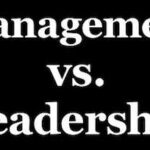Many people believe that wealth comes from luck, privilege, or a leg up from family connections. The narrative often paints the wealthy as either born into fortune or riding some wave of advantage unavailable to others. From that lens, wealth becomes something that should be shared out of obligation—redistributed as a form of justice.
But that view ignores a key truth about living in a free-market society: everyone has the opportunity to become wealthy, especially when they embrace the mindset of an entrepreneur.
Look at the stories of successful founders. Many of them started with little more than an idea and a few hundred dollars to their name. They didn’t have trust funds, ivy-league degrees, or influential family connections. In fact, many of them faced obstacles most would consider insurmountable. What set them apart wasn’t their circumstances, but their way of thinking. They saw problems as opportunities. They were willing to take calculated risks. They failed—and learned—and tried again.
This is the entrepreneurial mindset, and it’s available to anyone willing to adopt it.
Still, there’s a prevailing notion that those with wealth owe something to those without. While many wealthy individuals are generous with their giving, their donations often stem from personal values or a sense of fulfillment—not because of societal pressure. When people are forced to give through taxation or public shaming, it creates resentment. They seek legal shelters for their wealth, or redirect it in ways that minimize their perceived loss. Forced giving rarely produces the kind of genuine goodwill or long-term results that voluntary giving does.
But beyond the discomfort of forced generosity lies a deeper issue: what happens to the recipients of unearned income?
When someone receives money without earning it, it can sap their sense of agency. It robs them of the satisfaction and confidence that comes from achieving something on their own. Instead of fostering dignity and independence, handouts can create dependency. Over time, this dependence becomes a trap—a self-perpetuating cycle where people wait for help instead of helping themselves.
Related Post: Why Your Options Are Limiting Your Success
This is not to say that safety nets have no place in society. But if our primary method of lifting people up is through redistribution, we may be doing more harm than good in the long run.
Instead, we should focus on helping people think like entrepreneurs.
That starts with education—real-world education. Not just the kind found in textbooks or lectures, but mentorship, storytelling, and exposure to possibility. People need to see relatable examples of others who have turned their circumstances around by changing their mindset. Platforms like SteveBizBlog exist precisely for this reason: to shift the narrative from dependency to empowerment.
Communities, nonprofits, schools, and even banks have a role to play in this. Instead of simply offering financial aid, what if they offered mentorships, micro-loans tied to coaching, or entrepreneurship incubators? What if churches or local governments taught financial literacy and opportunity scanning instead of just budget basics?
By empowering people to act as creators rather than consumers, we cultivate long-term independence and pride. We build communities that are resilient—not because someone hands them money—but because they’ve learned how to generate it for themselves.
So, what are you going to do?
Will you continue to support systems that promote dependency, or will you invest time, knowledge, and resources into helping others think like entrepreneurs?












